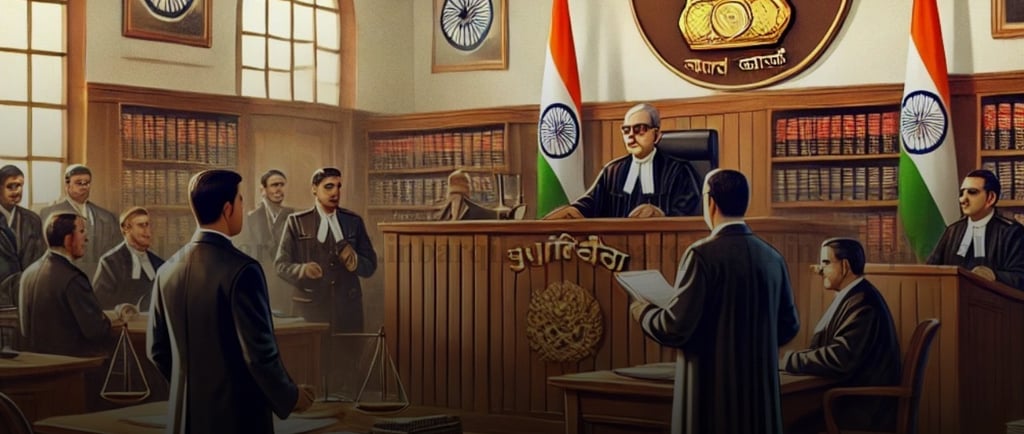Allahabad High Court Addresses Land Dispute Involving Bareilly Development Authority and Allegations of Fraudulent Sales
Allahabad High Court, presided over by Justice Manju Rani Chauhan, recently adjudicated on three connected applications under Section 482 Cr.P.C., filed to quash criminal proceedings in a contentious land dispute case.
12/27/20242 min read


Allegations of Fraudulent Land Sales: An FIR was lodged on November 13, 2022, by the Junior Engineer of BDA, alleging the illegal sale of 2/3rd of Khasra No. 825, located in Bareilly, despite it being recorded as surplus land vested with the state. Successors of the original tenure holders reportedly sold the land at undervalued rates, and these plots were further resold by private entities.
Key Accused and Legal Entities: The applicants, including directors of prominent firms like Alliance Builders and Contractors Ltd. and S.K. Associates, faced allegations of forgery, cheating, and criminal trespass. BDA claimed the transactions were void as the land belonged to the state post-ceiling proceedings.
Legal Arguments:
For the Applicants: The defense argued the dispute is civil in nature and accused the state of malicious prosecution. They contended that possession of the land was never transferred to BDA and cited procedural lapses in the original surplus declaration. Key points included:
The land was acquired lawfully in 2003 when revenue records listed private ownership.
The subsequent sales between 2021-2022 occurred without knowledge of BDA’s claim.
Procedural irregularities, including failure to mutate BDA's name in records, were highlighted.
For the Opposite Party: BDA asserted its possession of the land since 1990, supported by a memo issued under the Ceiling Act. It alleged the applicants engaged in fraudulent sales by exploiting gaps in revenue record maintenance.
Key Judicial Findings:
Possession Dispute: Conflicting claims about possession are central, with the Supreme Court ordering status quo until further adjudication.
Criminal Elements Questioned: Justice Chauhan noted the lack of prima facie evidence of criminal intent or forgery. The court emphasized that allegations against the applicants appear to stem from civil disputes over land title and possession.
Role of Revenue Officials: The court criticized lapses in recording state possession in revenue records, which allowed subsequent transactions.
Pending Supreme Court Decision: The High Court acknowledged that a final decision on land ownership and possession would impact the criminal proceedings.
Legal Precedents Cited:
The judgment relied on key Supreme Court rulings, including Mohd. Ibrahim v. State of Bihar and Inder Mohan Goswami v. State of Uttaranchal, to underscore the necessity of intent in criminal offenses like cheating and forgery.
Conclusion:
The High Court's decision underscores the interplay between civil and criminal law in property disputes. The applicants argued they acted in good faith as bona fide purchasers, while BDA maintained its claim of ownership through surplus land vesting. The court hinted at possible abuse of legal processes, emphasizing that the matter's resolution hinges on ongoing proceedings in the Supreme Court.
